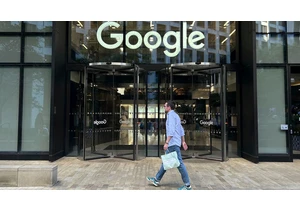The upside of friends, roommates, or family members sharing a multiline phone plan is everyone has a lower monthly bill. The downside, however, is one person is ultimately responsible for both paying that bill—and gathering what is owed to him or her from their friends each month.
AT&T is offering a new way to divvy things up, though. The carrier, on Thursday, will introduce AT&T SplitPay, which will individually bill people on select shared wireless plans. The service will be available immediately.
“College kids are Venmo-ing each other to share accounts,” says Erin Scarborough, AT&T’s President of Broadband & Connectivity Initiatives. “They’re having to calculate account charges per line and we’re taking that frustration out for them.”
AT&T says it is patenting the technology behind SplitPay, which has been in the works for over a year. While the company plans to restrict its use to its own cellular network initially, it is considering licensing the technology to other companies (that would, as an example, let people sharing a streaming service split the cost automatically).
SplitPay might make it easier for people to pay their share of a bill, but the primary account holder is still ultimately responsible for ensuring any financial obligations are met. Each person on the plan will get a text asking them to pay whatever their share of the bill is (including all fees). If they fail to do so, however, the primary account holder will receive a notification five days before the bill is due, letting them know who hasn’t yet paid.
If that person neglects to make a payment, the primary account holder will be charged and will have to recover the money from their friend (or family member) separately. SplitPay will allow for recurring payments as well, to minimize this scenario.
To sign up for the SplitPay service, AT&T account owners can log on to att.com/splitpay and assign a payor to each line.
Several companies, from Google to Airbnb, have tested out group payment methods in the past, but AT&T says the individual billing for a shared account is an industry first.
“Eighty-five percent of our customers have multiple line and we believe at least half of those are using split pay on their own in some form,” says Scarborough. “This is the first and only [payment system] of its kind in our industry. We’re happy to solve a pain point and solve it first.”
Accedi per aggiungere un commento
Altri post in questo gruppo

As Big Tech kicks off its quarterly earnings season this week, the industry’s bellwether companies have been thrust into a cauldron

Weeks ahead of his death, Pope Francis dedicated this month’s prayer intention to

Remember when TikTok went nuts for “Dubai chocolate”? Well, that fervor is now causing an international shortage of pistachios.
The trend took off in 2023 when food reviewer Maria Vehera

Google will confront an

Instagram has begun testing AI-powered technology designed to proactively identify accounts it suspects belong to teens—even if the user has listed an adult birthdate—and place them under special

Behind the curtain of generative AI breakthroughs and GPU hype, a quieter transformation is taking place. Data center architecture and its prowess have become a fierce battleground as AI models ex

Amid the video podcast boom, Netflix is making its own move into the space.
